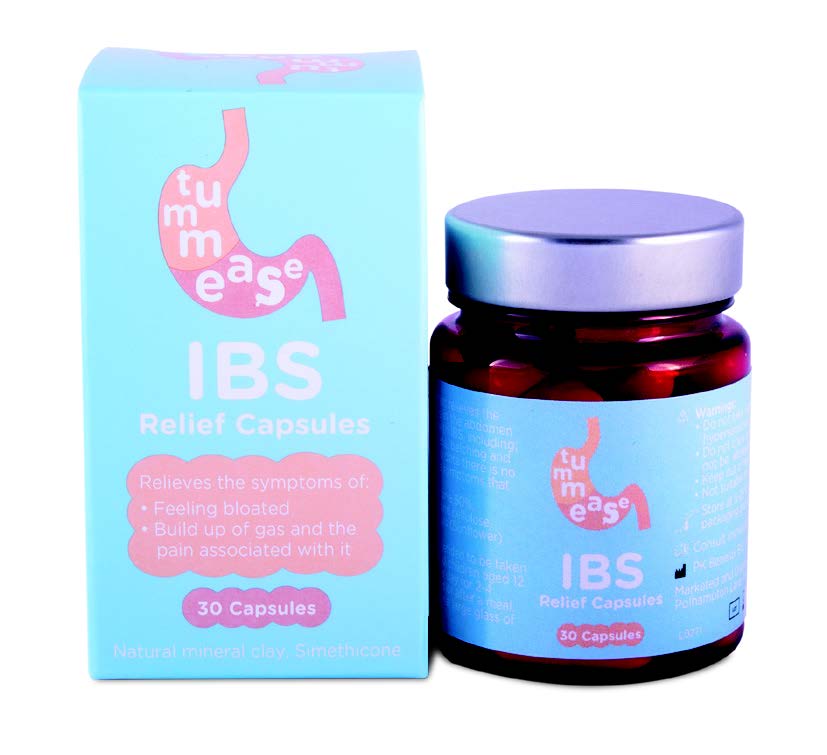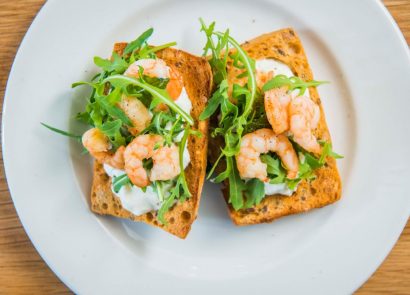Aaah, IBS – that catchall term for the misery-inducing symptoms wreaked on many of us by a sensitive stomach. “People with IBS have ‘visceral hypersensitivity’ which essentially means their gut is sensitive,” says specialist gastroenterology dietitian Julie Thompson, advisor to the IBS Network. According to Julie, first-line advice developed by the British Dietetic Association helps relieve symptoms in up to 50 percent of IBS sufferers, bringing improvements to day-to-day- life. “If those lifestyle changes don’t work we’d advise people to visit a registered dietitian to look at specific exclusion diets,” says Julie. But first, try these methods…
Slow down
Scoffing a breakfast bar in the car, lunching ‘al desko’, eating dinner in front of Netflix – sound familiar? Busy schedules require a creative approach to eating but eliminating multi-tasking mealtimes may bring benefits, whatever your IBS symptoms. “Be mindful about eating,” says Julie. “Take time over your meal, and sit down at a table to eat because that gives you a good position. Eat slowly and chew food well. Try to relax.” Eating food cooked from scratch, rather than rich processed foods, is also recommended. Making time to cook and eat well could pay dividends.
Ditch fasting diets
Whether it’s 5:2, time-restricted eating or other plans, intermittent fasting is a modern sensation praised for its potential to help eaters lose wait and fight ‘biological ageing’. Those who thrive while fasting will be evangelical in proclaiming its powers, but IBS sufferers beware. Sensitive guts can react badly to starvation mode. The simple advice from the British Dietetic Association is to eat three regular meals a day, avoiding skipping meals or eating late at night. Smaller meal sizes may also create less symptoms.
Retire from the office Starbucks round
Coffee has been grabbing some positive headlines of late, with researchers linking its consumption to improved organ function and even longer life span. IBS sufferers, however, should proceed with caution. “Limit caffeine from your drinks,” Julie advises, “taking no more than three caffeinated drinks a day. Caffeine tends to stimulates the gut and some people are particularly sensitive.” Research also suggests caffeine inhibits your body’s absorption of iron, meaning it’s best avoided at mealtimes. Drinking at least eight cups of fluid a day may also improve symptoms.
Skip sugar-free mints
Grabbing a pack of minty gum at the checkout can seem a great insurance policy against embarrassing bad breath moments, but did you know it can exacerbate diarrhoea? “Sugar-free mints and gum do generally carry a warning about having a laxative effect,” points out Julie. “We’d advise you reduce your intake of sugar-free mints and gum containing sorbitol, xylitol or mannitol.” More gentle solutions to neutralise bacteria in the mouth include a spoonful of live yoghurt or, if you’re on the go, a cube of cheese.
Be carb-sensible…
Low-carb lifestyles are flavour of the month right now, with advocates of keto and paleo plans arguing the toss over the place of gutfriendly wholegrains. So where should IBS sufferers turn? According to Julie, anyone trying to address the severe symptoms of IBS should find their own path. “If you have diarrhoea we recommend you reduce intake of high-fibre carbohydrates. So that’s wholemeal bread, wholegrain rice, wholegrain breakfast cereals,” she advises. “Swapping to white carbs may help symptoms, and anyone who eats lots of bread may find cutting back helpful.” Keeping a food diary can help keep track of the wraps, pittas, flatbreads and sliced loaves creeping into your diet.
…and watch fibre intake
If constipation is the problem, a gentle approach to upping fibre intake will avoid worsening symptoms. “Adding bran used to be the advice for easing constipation but we now realise that that’s not helpful,” says Julie. “Don’t increase your intake of wheat bran, but gradually increasing fibre intake – including wholegrains and vegetables – can ease symptoms.” As ever with a sensitive or irritable bowel, gently does it. “Adding it slowly is important because if you didn’t have much fibre in your diet and then start having it three times a day that will cause symptoms,” warns Julie.
Chill out
Growling tummy in a silent office; explosive wind during meetings; communal toilets – there are plenty of reasons to get stressed when your IBS is playing up, but clinical studies suggest psychological stress can also increase intestinal sensitivity. Finding methods to manage your stress and anxiety – yoga, meditation, aromatherapy or acupuncture, for example – can not only take the sting out of carrying the condition, but may even reduce flare-ups. “It’s about looking at your own lifestyle and taking what action you feel is appropriate,” says Julie. “For some people stress really does ramp up symptoms a lot, for others it’s not a trigger.”
Find more information, support groups and self-care advice at theibsnetwork.org
And watch out for…
…A bad night’s sleep
Sleep is increasingly considered an essential contributor to overall health and mental wellbeing, but IBS sufferers may struggle to bag their eight hours since sleep disturbance is a common symptom. Interestingly, some research suggests a bad day follows a bad night rather than vice versa, so taking care to banish phones, avoid caffeine and sleep in a cool room may have benefits beyond the night ahead.
…Phone scrolling
Hunched ‘forward head’ posture consistent with using a handheld device while sitting may contribute to IBS symptoms. Sounds far fetched? Your posture has implications for the activity of important nerves connecting the brain and the digestive system, and indeed for the comfy expulsion of gas. Studies have also found that the downward dog posture in yoga can reduce occurrence of diarrhoea.
…Antibiotics
When you’re blighted with a nasty infection it’s easy to assume medication is the best way to feel better. However, the intestinal damage broad-spectrum antibiotics can cause is informing an increasing caution about their use. The NHS no longer recommends their routine use in cases of chest or ear infections; wiping out precious populations of friendly gut bacteria will exacerbate IBS symptoms.
Handy helpers
-
 Natures Aid NutriGUT-C £14.95, available from independent health food stores
Natures Aid NutriGUT-C £14.95, available from independent health food stores
-
 Optibac Probiotics £22.99 for 30 capsules, optibacprobiotics.co.uk
Optibac Probiotics £22.99 for 30 capsules, optibacprobiotics.co.uk
 Tummease £7.99, available from Superdrug
Tummease £7.99, available from Superdrug





















